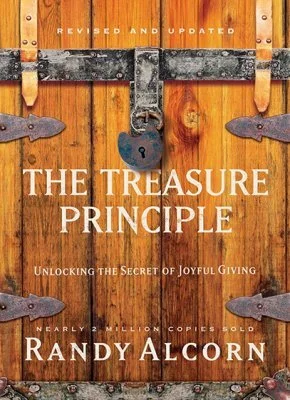In 1873, at the age of 18, Queen Victoria stepped into the role of reigning monarch over the United Kingdom. She would spend more than 60 years adapting to and walking out her inherited role in what became known as the “Victorian Era”. In reality, she became Queen the minute her reigning uncle passed away, but spent years growing into the enormity of her title.
There’s something to be said for embracing and walking in something we’ve already been given. Like gifts with “some assembly required”, and the ones that demand some devoted time with a user manual, some gifts are participatory.
Think for a second about the gifts Paul describes in 2 Timothy 1:7. Instead of giving us a spirit of fear and timidity, God has granted us a spirit of power, love, and a sound mind. This trio in the latter part of the verse are as hands-on as gifts come. These gifts were designed to be worn, used, and learned, as opposed to the kind you tear the wrapping paper off and stick on a shelf to admire from afar.
Some of us take a detour around the confidence offered us by 2 Timothy 1:7 by doubting that power, love, and self-discipline really belong to us in the trenches of normal life. Some might object, “There’s no way that’s true of me. My mind is the farthest thing from “sound” most days.” Okay. But if we found ourselves in Queen Victoria’s shoes in her early days, we’d probably admit, “I have no idea what this takes. There’s no way I’m fit for this.” And yet the monarchy belonged to her. If God says He has given something to His children, He has in certainty, regardless of whether we feel like it or not.
So where is the disconnect between our personal experience and what 2 Timothy 1:7 tells us we’ve been entrusted with?
SOME of what God has given us, He has designed us to learn to embody in practice, over the course of our lifetime.
John Piper says it this way:
“I want you to glory in what it means to be a Christian…You become a Christian by a decisive work of God in you and by a decisive surrender to Jesus Christ through which, by faith in Him, He becomes your substitute and your Lord. Then comes a lifelong experience of becoming in practice what you are by your position. And that becoming — called sanctification — strengthens your assurance that you are real.”
God has given us a supernatural ability to walk in power, love, and a sound mind instead of fear and timidity. It is readily available to us, but we are called to cultivate it. Much like Paul’s exhortation for Timothy to “fan into flame” the gifts that God had given him in the verse prior, we are called to cultivate the spirit of power, love, and self-discipline in our own lives.
What is it Really?
What does it mean to have a “sound mind”? Your Bible may also translate the phrase as “discipline,” “sound judgement,” “self-control,” or “sobriety,” depending on the version you have. Its literal translation is “saving the mind”, and it pulls from the idea of “training” (Vine’s Expository Dictionary of New Testament Words). We’re starting to see why the word “discipline” makes sense here.
We have been given a supernatural ability by God to cultivate a discerning, intentional, and settled state of mind. The kindness of God is remarkable. We serve a God who not only cares for us enough to save our souls for eternity, but also gives us the capacity to create an atmosphere of peace, clarity, and stability in our minds. He wants our thought lives to be marked by peace.
Here are 5 practical ways to cultivate a disciplined, sound mind in an every-day context:
5 WAYS to Cultivate a Sound Mind
1. CHECK YOUR INFLUENCES
So much of our thought life is a direct reflection of the myriad of stimuli offered by the world around us. Whether via books, podcasts, news outlets, sports coverage, social media, radio, television, movies, magazines, websites, sermons, song lyrics, billboards, YouTube videos, gaming platforms, blogs, commercials, or push notifications, we are being bombarded daily with information that was designed in some way to shape our thinking or sway our opinions.
This doesn’t even scratch the surface of other influencing voices that rise from personal conversations, meetings, seminars, family gatherings, emails, messages, and notes.
It’s no surprise that author Brett McCracken, in his book The Wisdom Pyramid, remarks:
“Constant distraction is a greater temptation for humans today than any generation of humans prior have faced.”
We’re blessed in that solid, gospel-driven resources are more available to us and the nations than ever before. We can download digital content that stirs our affection for Christ in a matter of seconds. But we’re also inundated with products of countless worldviews that are directly opposed to the gospel, and content that the enemy would love to use to bend our hearts, prone to wandering, away from the truth.
Increasingly, it’s getting more difficult to resolve with the Psalmist, “I will not set before my eyes anything that is worthless.” (Psalm 101:3)
It’s critical for us to evaluate what we are allowing to influence our thoughts.
2. BE A BOUNCER
We are the God-appointed gatekeepers of our minds. If we don’t, who else will vet the 6,000+ thoughts we think per day, denying entry to those that aren’t pleasing to the Lord?
If 2 Corinthians 10:5 teaches us to “destroy arguments and every lofty opinion raised against the knowledge of God, and take every thought captive to obey Christ,” then there’s room for some “holy defiance” against thoughts that oppose the truth.
“May the words of my mouth and the meditation of my heart be pleasing to you, O LORD, my rock and my redeemer.” Psalm 19:14 (NLT)
3. COUNSEL YOURSELF
“Don’t think about an elephant.” What are you thinking about?
The elephant.
Rebel thoughts don’t disappear unless they’re replaced with alternatives. Paul gives some good parameters here:
“Finally, brothers, whatever is true, whatever is honorable, whatever is just, whatever is pure, whatever is lovely, whatever is commendable, if there is any excellence, if there is anything worthy of praise, think about these things.” Philippians 4:8 (ESV)
Paul David Tripp says he always gets laughter in response to this, but it’s true:
“No one is more influential in your life than you are, because no one talks to you more than you do.” (Read Full Article Here)
We’ve actually been given a model for talking to our own souls in Scripture.
In Psalm 43:5, the psalmist addresses himself: “Why are you cast down, O my soul, and why are you in turmoil within me? Hope in God; for I shall again praise Him, my salvation and my God.”
We’re always talking to ourselves internally, but it’s time to steer our own conversations toward the truth.
4. MEMORIZE & MEDITATE
Here’s a life hack: passages like Philippians 4:8 are amazing in the face of “elephant” thoughts. Occupy your mind with calling a verse to memory, and you’ll find there is little room left for the old thought pattern.
Here’s a word from Jerry Bridges:
“God’s Word must be so strongly fixed in our minds that it becomes the dominant influence in our thoughts, our attitudes, and our actions. One of the most effective ways of influencing our minds is through memorizing Scripture. David said, ‘I have hidden Your Word in my heart that I might not sin against You’ (Psalm 119:11).”
Let your memorization lead to meditation. Things like phone reminders, Post-It notes, and mobile apps serve as great personal prompts. Get creative by writing out the passage in your own words, figuring out how to explain it to your 4-year-old, coming up with motions (cheesy, but effective), writing with a dry-erase marker on the bathroom mirror, or designing a lock-screen graphic for your phone if you’re into graphic design.
5. BE RENEWED
Romans 12:2 overflows with abundant hope for our thought lives:
“Do not be conformed to this world, but be transformed by the renewal of your mind, that by testing you may discern what is the will of God, what is good and acceptable and perfect.”
Our minds are designed to be renewed. It’s how life transformation actually happens.
For a few more practical ways to lean into what this can look like in the normal rhythms of life, click here!
























